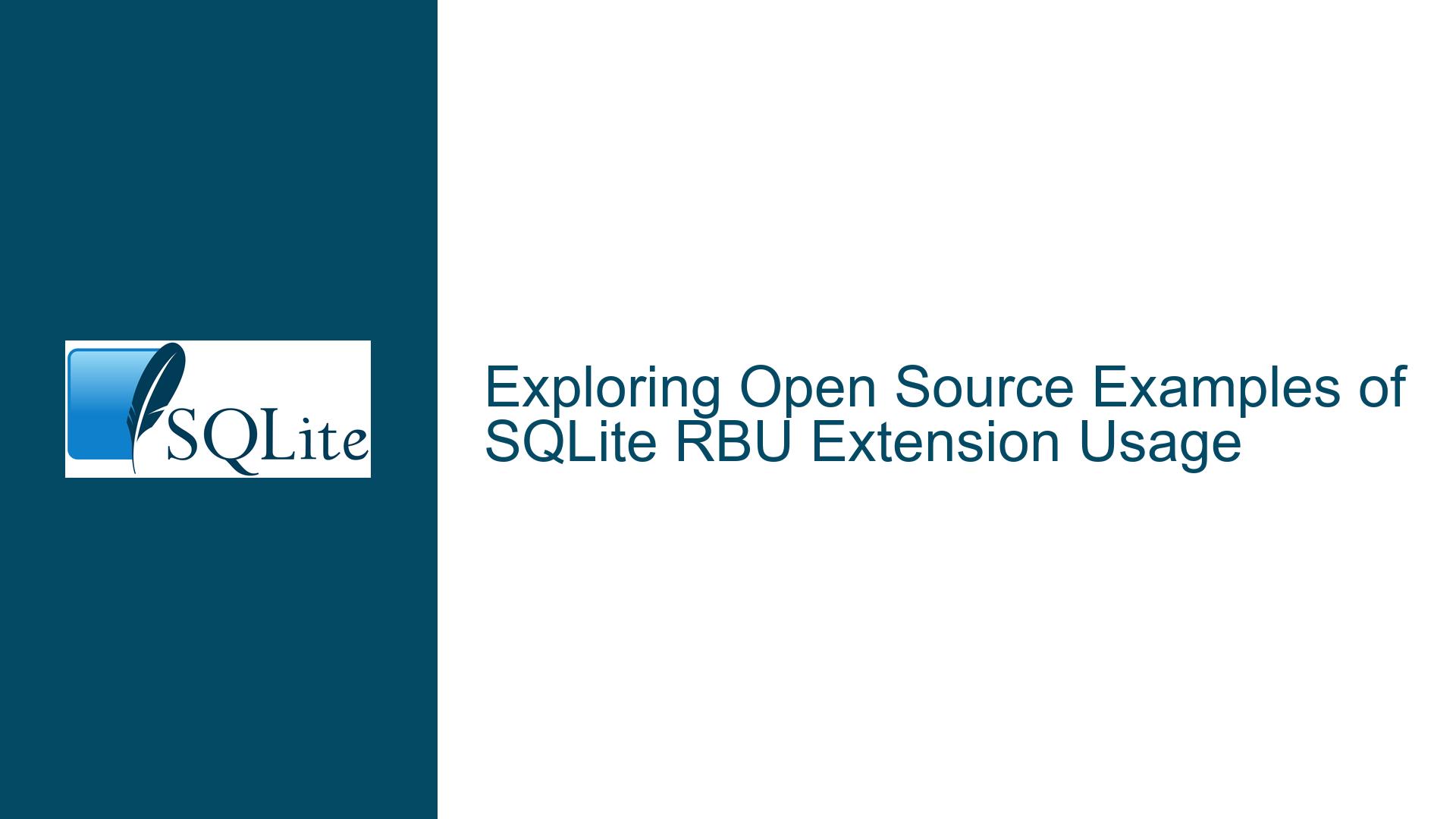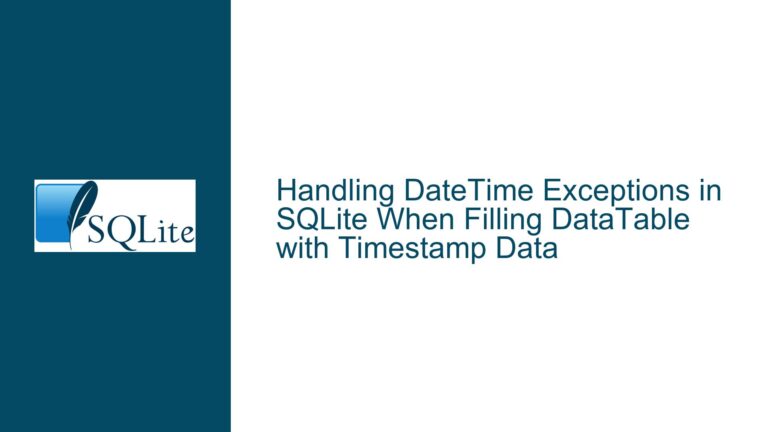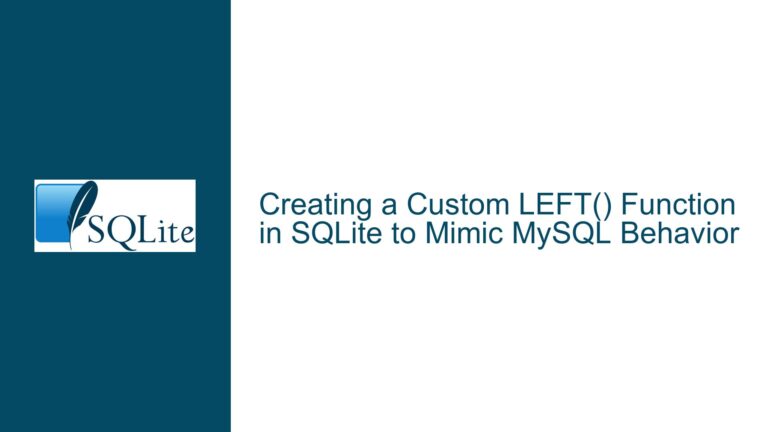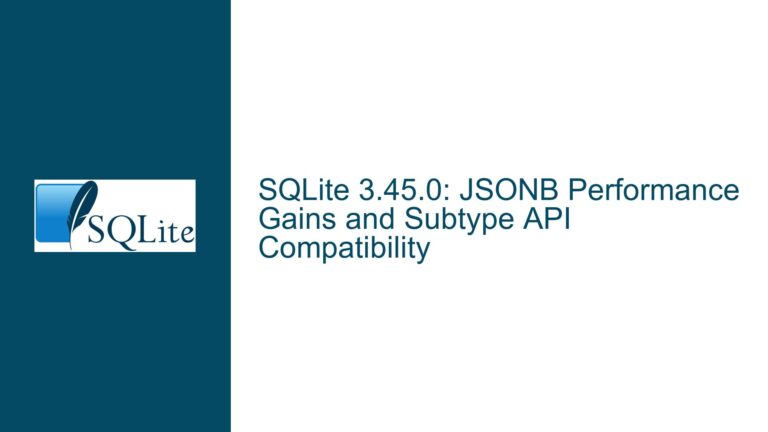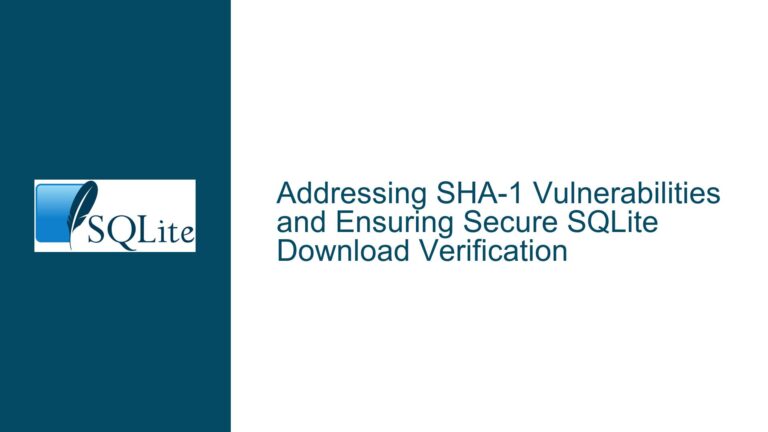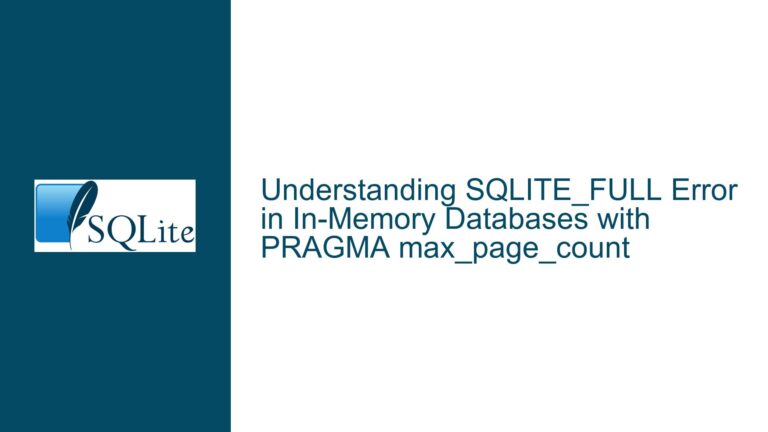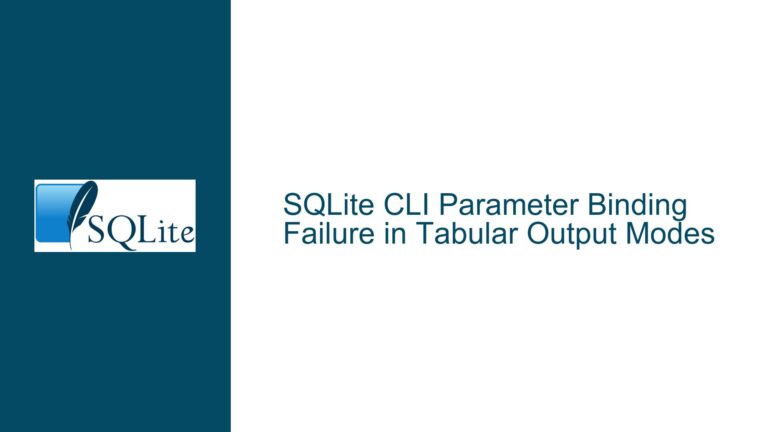Exploring Open Source Examples of SQLite RBU Extension Usage
Understanding the Remote Bulk Update (RBU) Extension in SQLite
The Remote Bulk Update (RBU) extension in SQLite is a powerful tool designed to facilitate efficient and large-scale updates to SQLite databases, particularly in scenarios where databases are distributed across multiple devices or locations. The RBU extension allows for the application of bulk updates to a database without requiring direct access to the database file itself. Instead, updates are applied through a series of operations that can be executed remotely, making it an ideal solution for updating databases on external devices such as IoT devices, mobile applications, or distributed systems.
The RBU extension works by creating a separate update file that contains the changes to be applied to the target database. This update file is then transferred to the device or system where the target database resides, and the RBU extension applies the changes to the database in a controlled and efficient manner. This approach minimizes the risk of database corruption and ensures that updates are applied consistently across all devices.
Despite its potential, the RBU extension is not as widely documented or used as other SQLite features, which can make it challenging for developers to find practical examples or open-source projects that demonstrate its usage. This lack of readily available examples can be a barrier for developers who are looking to leverage the RBU extension in their own projects.
Challenges in Finding Open Source Examples of RBU Usage
One of the primary challenges in finding open-source examples of the RBU extension in action is the relatively niche nature of the tool. The RBU extension is designed for specific use cases, such as updating databases on remote or embedded devices, which may not be as common as other database operations. As a result, there are fewer open-source projects that have implemented the RBU extension, and those that have may not have documented their usage in a way that is easily accessible to other developers.
Another challenge is the complexity of the RBU extension itself. While the SQLite documentation provides a high-level overview of how the RBU extension works, it does not always provide detailed examples or step-by-step guides for implementing the extension in real-world scenarios. This can make it difficult for developers to understand how to integrate the RBU extension into their own projects, especially if they are not already familiar with SQLite’s advanced features.
Additionally, the RBU extension requires a certain level of expertise in SQLite and database management to use effectively. Developers who are new to SQLite or who have limited experience with database updates may find it challenging to work with the RBU extension, particularly if they are trying to implement it without the benefit of existing examples or documentation.
Strategies for Implementing the RBU Extension in Your Projects
Given the challenges in finding open-source examples of the RBU extension, developers who are interested in using the tool may need to take a more proactive approach to understanding and implementing it. One strategy is to start by thoroughly reviewing the SQLite documentation on the RBU extension, paying close attention to the examples and explanations provided. While the documentation may not cover every possible use case, it does provide a solid foundation for understanding how the RBU extension works and how it can be applied to different scenarios.
Another strategy is to experiment with the RBU extension in a controlled environment before attempting to use it in a production setting. This could involve creating a test database and applying a series of updates using the RBU extension to see how it behaves under different conditions. By doing so, developers can gain a better understanding of the RBU extension’s capabilities and limitations, as well as identify any potential issues that may arise during implementation.
Developers can also consider reaching out to the SQLite community for guidance and support. The SQLite mailing list, forums, and other online communities can be valuable resources for finding information about the RBU extension and connecting with other developers who have experience using it. While there may not be many open-source examples of the RBU extension in action, there are likely developers who have worked with the tool and can provide insights or advice based on their own experiences.
In addition to these strategies, developers can also explore alternative approaches to updating SQLite databases in distributed environments. While the RBU extension is a powerful tool, it may not always be the best solution for every use case. For example, in some scenarios, it may be more efficient to use SQLite’s built-in replication features or to implement a custom solution for applying updates to remote databases. By considering these alternatives, developers can ensure that they are choosing the most appropriate tool for their specific needs.
Conclusion
The Remote Bulk Update (RBU) extension in SQLite is a powerful tool for updating databases in distributed environments, but its niche nature and complexity can make it challenging to find open-source examples or detailed documentation. Developers who are interested in using the RBU extension should start by thoroughly reviewing the SQLite documentation, experimenting with the tool in a controlled environment, and seeking guidance from the SQLite community. Additionally, developers should consider alternative approaches to updating SQLite databases to ensure that they are choosing the most appropriate solution for their specific use case. By taking these steps, developers can effectively leverage the RBU extension to manage and update SQLite databases in distributed environments.
